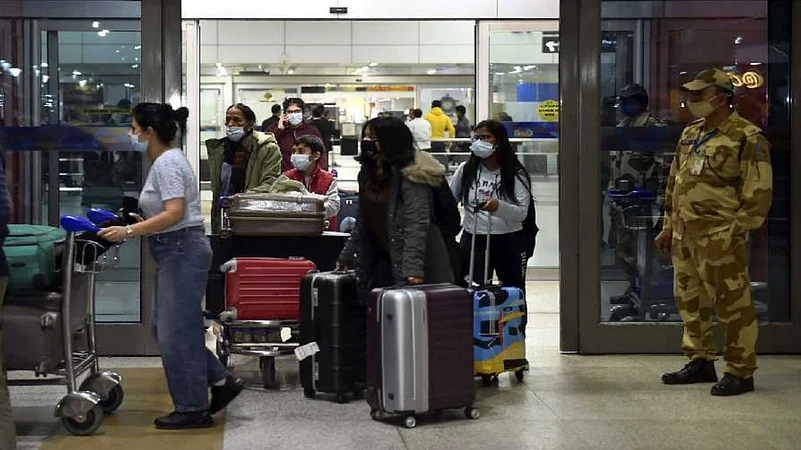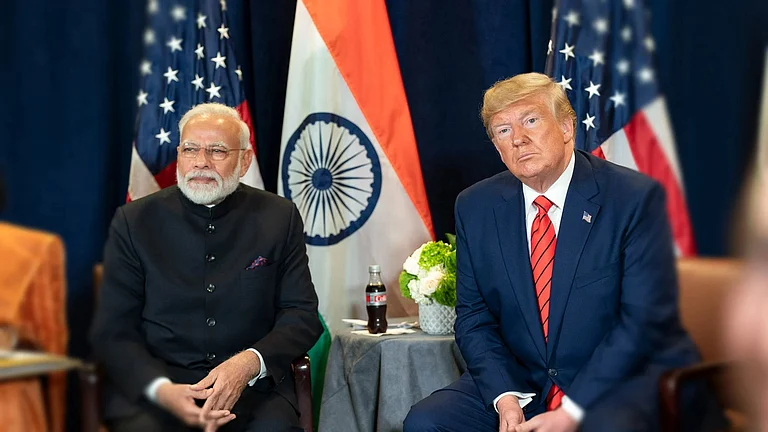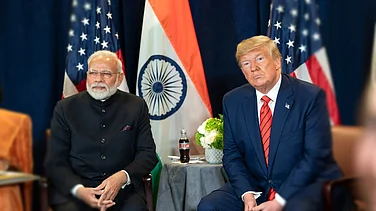Aviation security body Bureau of Civil Aviation Security (BCAS) informed on Monday that close to 25,000 prohibited items are confiscated from air passengers in India on a day-to-day basis. This arises due to a lack of awareness from passengers and results in a lot of delay during airport security checks, said Zulfiquar Hasan, the director general of BCAS.
Within hand luggage, lighters constitute the largest share of prohibited items found among 4.8 lakh air passengers daily. While lighters make up 26 per cent of banned articles, it is followed by scissors and knives at 22 per cent and 16 per cent, respectively.
From the bag screenings of close to 3,300 flights every day, power banks account for almost half of the prohibited items found within checked-in luggage. Lighters amount to 19 per cent in this category and loose batteries add up to 17 per cent.
Aviation security watchdog BCAS is celebrating aviation security culture week, beginning on 31 July. Speaking at the inauguration ceremony of the event, BCAS chief Zulfiquar Hasan stated that cyber threat is the biggest new threat to emerge in the aviation security space. He also added that drone-based attacks are a significant threat and that the authorities are preparing to tackle the rising concern around drone attacks.
Capt. Devi Sharan of Air India was the chief guest at the occasion. The pilot, who came out of retirement during the pandemic, is renowned in aviation space as the captain who handled the IC-814 hijacked flight in 1999. Recounting his experience from the unfortunate Kandahar hijack incident, the pilot pointed out that a specialised aviation security force (ASF) is required to handle critical situations in airport security.
Although proposals regarding such a force were floated after the 1999 incident, it never materialised. “If we had ASF [back then], some preventive action could have been taken by the Amritsar airport. There was no one trained to tackle the issue in Amritsar,” Devi Sharan said.
In December 1999, Air India flight IC-814 scheduled to fly from Kathmandu, Nepal to New Delhi was hijacked by five militants after it entered the Indian airspace. The flight was forced to re-route to multiple locations such as Amritsar, Lahore and Dubai before it finally ended up in Taliban-controlled Kandahar, Afghanistan. The hostage situation lasted for seven days before the Indian government agreed to release three terrorists, in exchange for the safe passage of IC-814 passengers and crew.
Security Over Commercialisation
With the rising number air passengers in the country, there is an urgent need to strengthen security measures, BCAS director general Zulfiquar Hasan said at the event. According to latest data available with Director General of Civil Aviation (DGCA), air traffic in India increased by 33 per cent in the January-June period of 2023.
Without naming any specific airports, BCAS admitted that security areas have been encroached by commercial in several airports. To cater to the increasing number of passengers, “commercial area [in airports] should be reduced and security area should be increased,” said Hasan.
He also added that there should be a prioritisation of air security information in airport waiting areas instead of advertisements for consumer goods. “We already mandated that security related information should be shown to passengers during waiting time and not an ad for soap or something like that.”
The BCAS also reiterated its demand for installation of CT X-ray devices and full body scanners in airports to reduce the delay caused by physical security frisking process. Earlier, the aviation security watchdog had asked all airports handling over 50 lakh passengers annually to install these devices by 31 December 2023.































